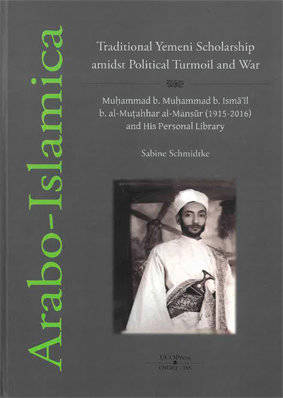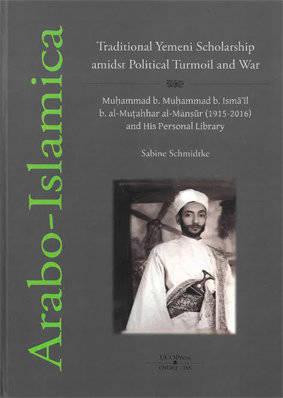
- Retrait gratuit dans votre magasin Club
- 7.000.000 titres dans notre catalogue
- Payer en toute sécurité
- Toujours un magasin près de chez vous
- Retrait gratuit dans votre magasin Club
- 7.000.0000 titres dans notre catalogue
- Payer en toute sécurité
- Toujours un magasin près de chez vous
Traditional Yemeni Scholarship amidst Political Turmoil and War
Sabine Schmidtke
Livre relié | Anglais
43,45 €
+ 86 points
Description
The rich holdings of private and public manuscript libraries in Yemen constitute a unique laboratory providing ample material to engage a wide array of scholarly interests, ranging from historical anthropology and social sciences to intellectual history, Islamic studies, codicology, and the history of libraries. The present study highlights the great potential for future research that the available and for the most part still unexplored material offers, by focussing on Mu?ammad b. Mu?ammad b. Ism???l al-Man??r (1915-2016), one of the most prominent scholars, bureaucrats, and politicians of twentieth-century Yemen, and his private collection of manuscripts.Based on his ij?za ("licence to transmit"), his own writings, and other documentary materials, the book opens with a chapter discussing his biography and intellectual milieu. The remaining three chapters revolve around Mu?ammad al-Man??r's personal collection of manuscripts and the many handwritten comments and notes added by al-Man??r. The numerous purchase notes open a window onto the gradual growth of al-Man??r's personal library, and the additional information included in these notes provides insights into the ways in which manuscript codices changed hands during his lifetime (Chapter Three). Another striking feature of the collection are the codices al-Man??r copied in his own hand?while he had produced some during his student days, he copied out others decades later as a pious excercise. With respect to al-Man??r's intellectual biography and his education, the information contained in the paratextual materials often corroborates or even supplements what is known on the basis of other sources. Moreover, a number of codices in Mu?ammad al-Man??r's collection of manuscripts reflect the teaching practices at the mosque university (al-madrasa al-?ilmiyya) in ?an??? during the early 1930s. Some salient examples are discussed in Chapter Four of the book. Taken together, the volumesignificantly contributes to the study oftwentieth-century Yemen's intellectual and social history, and it immediately relates to recent work of historical anthropologists specializing in Yemen.
Spécifications
Parties prenantes
- Auteur(s) :
- Editeur:
Contenu
- Nombre de pages :
- 308
- Langue:
- Anglais
Caractéristiques
- EAN:
- 9788499274232
- Date de parution :
- 01-10-18
- Format:
- Livre relié
- Dimensions :
- 240 mm x 170 mm
- Poids :
- 762 g

Les avis
Nous publions uniquement les avis qui respectent les conditions requises. Consultez nos conditions pour les avis.






